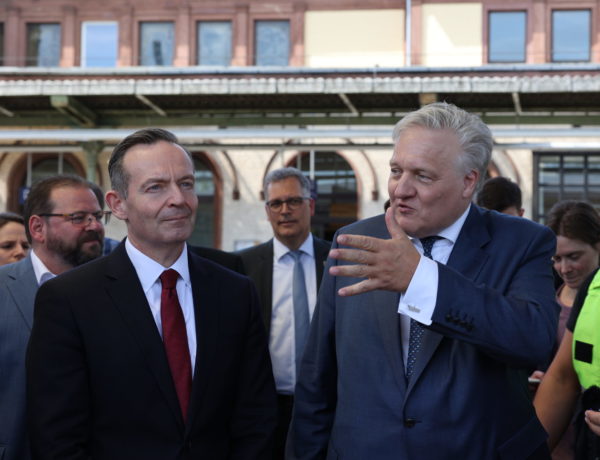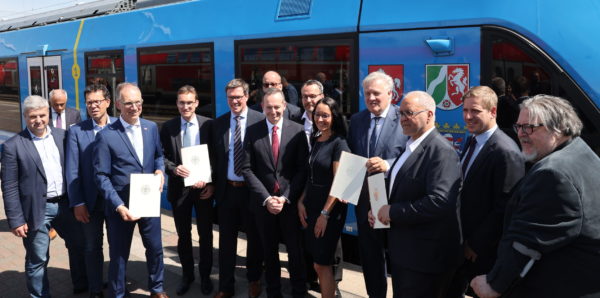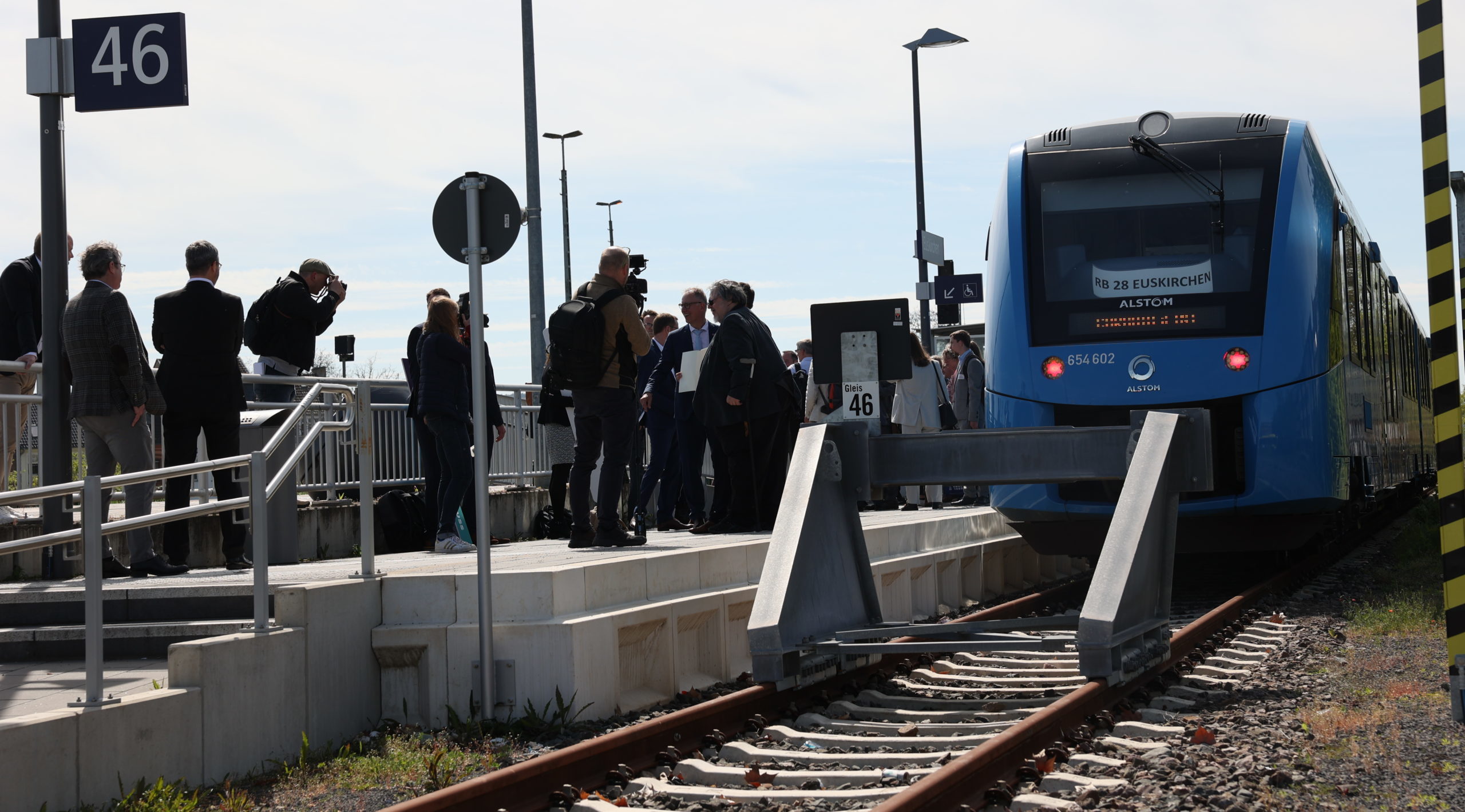Alongside the Helmholtz Cluster for a Sustainable and Infrastructure-Compatible Hydrogen Economy (HC-H2), other major hydrogen projects are being pursued with the aim of achieving an energy transition in the Rhenish mining area. For example in the district of Düren.
Green Hydrogen for Düren Trains
The district, which neighbours all three open-cast mines in the Rhenish mining area, aims to be carbon-neutral by 2035. This ambitious aim makes it a pioneer in Germany.
Switch to hydrogen trains
To achieve this goal, the district must switch the operation of all public buildings and vehicles to technologies that do not emit greenhouse gases like CO2 into the atmosphere within the next 12 years. The district of Düren is therefore replacing its diesel trains with hydrogen trains by the end of 2026. The green hydrogen required to do so will be produced in the district of Düren itself – at the Brainergy Park where Forschungszentrum Jülich’s new Institute for a Sustainable Hydrogen Economy (INW) is situated.
“We need to be enthusiastic when it comes to promoting climate change in Germany and leading the country into a new era, including from an economic perspective.”
Wolfgang Spelthahn, Düren district administrator

Transport minister Volker Wissing (left) at Düren train station speaking to district administrator Wolfgang Spelthahn. Photo: Forschungszentrum Jülich/Foit
The German Federal Ministry for Digital and Transport is providing the district of Düren with a total of € 81.6 million in funding as it supports its plans for the operation of fuel cell trains and a hydrogen filling station as well as the construction of an industrial-scale electrolyzer. German federal transport minister Dr. Volker Wissing was in Düren to hand over the funding grant approvals. “We need pioneers who lead the way. With these 17 trains, we have a fantastic project here that we are very happy to support,” he said.
Response to the issue regarding the origin of green hydrogen
Wissing sees Düren’s pioneering achievements primarily in the fact that the district is not only putting hydrogen-powered trains onto the rails, but that it is also producing carbon-neutral green hydrogen. “Hydrogen projects are wonderful. But where will the green hydrogen come from?” Wissing was making reference here to one of the main tasks of the transition to green energy. “It is wise to answer this question directly – as has been the case here – and to say: It would be best if we produce it ourselves.”
“We have also seen pioneers in other places who want to lead the way and use hydrogen in various ways. I’m delighted that we have courageous people here in Düren who are also leading the way and saying: This is an opportunity for the future of our region.”
German federal transport mininster Volker Wissing
The € 81.6 million in structural funding can be broken down into four parts: € 55.7 million is being allocated to go.Rheinland for the procurement of fuel cell trains, € 14.8 million to HyDN GmbH for the construction of an electrolyzer, € 3.8 million to Beteiligungsgesellschaft Kreis Düren mbH for a hydrogen refueling station, and € 7.3 million to Regionalverkehr Köln GmbH (RVK) for the expansion of hydrogen infrastructure in Mechernich (district of Euskirchen). Further information can be found here.
“It is important that people get to experience the net-zero hydrogen economy of the future,” says Prof. Andreas Peschel, director at INW, which forms the core of HC-H2. “If people here in the region are soon able to board these trains, which run on hydrogen without any problems, then there will be a growing acceptance for this important topic.” The demonstration of hydrogen technologies is one of the core aims of HC-H2. If others then follow suit, the visibility of hydrogen will be increased – both as a key technology of the energy transition and as a creator of jobs during the process of structural change in the Rhenish mining area, where jobs are set to be lost due to the phasing out of lignite by 2030. Renewable energy technologies using hydrogen, for example, should help to create new economic power and new jobs in the region.

Smiles all round in Düren, as federal transport minister Volker Wissing (centre) hands over the funding grant approvals Photo: Forschungszentrum Jülich/Foit
“It is a really good investment that the federal government is making here. We want to become carbon-neutral here in the region. But we aim to do so in an intelligent and enthusiastic way. This is why we are taking a holistic approach to hydrogen,” said Düren district administrator Wolfgang Spelthahn.
“We want to produce the hydrogen here, which is why we have received funding for the electrolyzer. We aim to produce green hydrogen, of course, which is why we are building the solar park and connecting wind turbines to the grid. And we also want to then convert our public transport services to hydrogen. This is why we have received funding for the filling stations in Euskirchen and Düren and, in particular, for the electrolyzer and the procurement of 17 hydrogen trains.”

